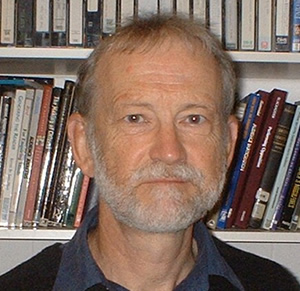
We saw the rise of “cultural racism” in France in the first post. Another term for the same type of racism found in the literature is the “new racism”. In a future post I’ll outline the rise of this new racism in Britain as a companion to the first post on its rise in France. For now, however, I present a description of the new racism as explored by Martin Barker in The New Racism: Conservatives and the Ideology of the Tribe (1981). Yes, it’s another old source. As mentioned earlier, I’m going through the sources I find often cited in more recent literature first.
The Components of the New Racism
The first point we notice in surveying the debates over and the expressions of the new racism is the centrality of the idea of a “way of life or a culture”
National consciousness is the sheet anchor for the unconditional loyalties and acceptance of duties and responsibilities, based on personal identification with the national community, which underlie civic duty and patriotism [Sherman, Alfred. ‘Why Britain can’t be wished away’, Daily Telegraph, 8 September 1978].
Thus Alfred Sherman, Director of the right-wing Institute for Policy Studies in one of the Daily Telegraph‘s regular centre-page pronouncements on race. We are bound together by feelings of oneness, and indeed these are strengthened by recognition that others are different. ‘It is from a recognition of racial differences that a desire develops in most groups to be among their own kind; and this leads to distrust and hostility when newcomers come in’ [Page]. Thus Robin Page, in another of these pronouncements. But Page was aware that this left him open to a charge of racism which he was keen to avoid. So he made it clear that ‘the whole question of race is not a matter of being superior or inferior, dirty or clean, but of being different‘ [ibid.].
(Barker, 20. My bolding in all quotations. I have exchanged Barker’s end-note numbers with full references in-line.)
Immigration posed a threat because it meant “aliens” would destroy the “homogeneity” of the insiders. Enoch Powell was a strident voice in the 1970s and proudly announced that “heroic measures” were called for: “repatriation”. The justification: “human nature”.
They would indeed be heroic measures, measures which radically altered the prospective pattern of our future immigration, but they would be measures based on and operating with human nature as it is, not measures which purport to manipulate and alter human nature by laws, bureaucracy and propaganda [Powell, Enoch. ‘Speech to Stretford Young Conservatives,’ in Daily Telegraph, 22 January 1977].
And here we have reached the core of the new racism. It is a theory of human nature. Human nature is such that it is natural to form a bounded community, a nation, aware of its differences from other nations. They are not better or worse. But feelings of antagonism will be aroused if outsiders are admitted. And there grows up a special form of connection between a nation and the place it lives: ‘Britain is not a geographical expression or a New-World territory open to all comers with one foot in their old home and one in their new. It is the national home and birthright of its indigenous peoples’ [Sherman, ‘Why Britain . . .’ ]. It is becoming clear that expressions of this sort are not just rhetoric, but rhetoric whose emotional content is warranted by an emergent theory.
(Barker, 21)
“Nothing racist”, goes the idea, because it only being kind to the foreigners, too! Barker continues:
Foreigners too have their natural homes. Stopping immigration is being kind to them as well. When we consider the East African Asians, for example, it would be kinder to stop them coming here; after all ‘what would have been more natural than for them to quit their Diaspora and return to help build their independent homelands, Mother India, Pakistan, Bangladesh?’ [Sherman, ‘Why Britain . . .’ ]. John Page represented this point of view in Parliament: ‘I fail to see’, he argued, ‘how the natural home of an ex-Malawi Goan can be Harrow West’ [Hansard. House of Commons Official Report, vol. 914, no. 137, Monday 5 July 1976 p. 1077]. Your natural home is really the only place for you to be; for that is something rooted in your nature, via your culture. ‘Parliament can no more turn a Chinese into an Englishman than it can turn a man into a woman’, wrote Sherman [‘Why Britain . . .’ ].
Barker challenges this deployment of the “natural home” idea: Continue reading “Understanding Racism (3) — The New Racism and Commonsense”
